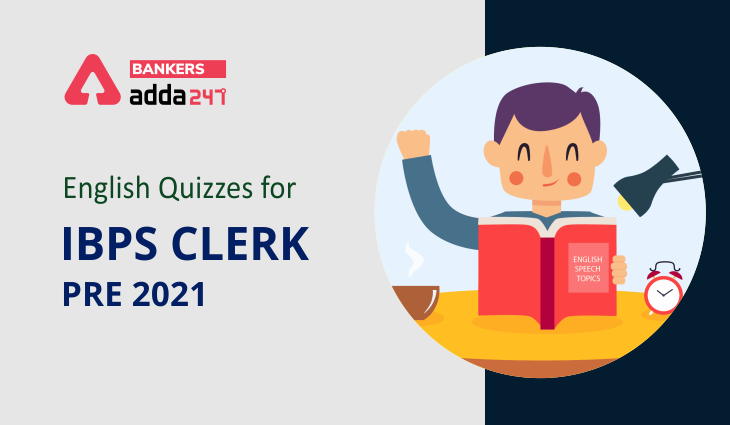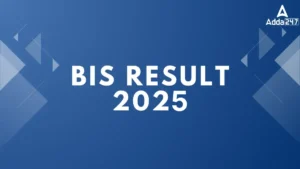Directions (1-6): Read the following passage carefully and answer the questions given below it. Certain words are given in bold to help you locate them while answering some of the questions.
Smiling a lot is a valued trait: People who often smile sincerely radiate likeability, connect easily with others and are appreciated more. By smiling, you make a positive impression that will assist in making contacts and reaching your goals. Moreover, smiling makes you feel good. However, not all smiles are created equal, and it is not a good idea to smile in every situation. Let’s face it, smiling is not always as easy as it looks, which might be why we often indulge in it so sparingly. When all is said and done, it takes a bit of practice to turn smiling into a habit. Management is serious business! However, most managers are aware of the positive effect a well meant smile can have on others. In most situations your smile will contribute to your success. On the other hand, there are moments when you’d better not smile: Imagine that you are receiving some bad-news, or you’re in the middle of a difficult negotiation.
In addition, not all smiles are created equal: When someone smiles, we think of pleasure and happiness first, but that interpretation is not always correct. Imagine, for example, that you stumble on the street and almost knock into someone. Are you happy? No! But the chances are high that you will smile at the other person, and that the other person will immediately answer with a smile. The meaning of the smile here is more by way of an apology.Finding the right balance between showing a happy or serious facial expression is an art in itself. We want to come across as relaxed and friendly, but be taken seriously at the same time. However, If we contemplate this for too long, a frown will soon appear on our faces. In the end, with a smile, you will achieve the most and you will feel most happy with it. Nevertheless smiling isn’t always that easy; sometimes a lot of courage is needed to do it. Especially in situations where when it’s preferable to smile, we tend to clench our jaws and look too tense.
Many job applicants miss out on a promising career because they were too tense to conjure a spontaneous smile on their faces. Many lovers miss out on their life partner because they didn’t dare smile during the first meeting. And many managers have possibly lost the deal of their dreams, because they couldn’t smile spontaneously. A well-meant smile is almost something you cannot do too much of. Most people respond positively to this friendly gesture. And if they do not do that, it probably says more about their own fear of smiling. That said, smiling at someone who does not smile back can evoke a feeling of discomfort and shame. We naturally fear losing face. That’s why we perhaps do not always dare to smile.
Q1. According to the passage, smiling is beneficial in many ways. How?
(a) Smiling can bring happiness in everyone’s life.
(b) Smiling can relieve us from stress.
(c) Smiling assists us in making contacts and thus helps to reach our goals.
(d) It can make us free from all the obstructions covering our path towards our target.
(e) All of these
Q2. What does the author mean by the statement “smiling is not always as easy as it looks”?
(a) It needs a lot of practice to perfect the art of smiling.
(b) All smiles are not equal and our indulgence in it depends upon the nature of the situation.
(c) It is very difficult to make smiling as a habit.
(d) Smiling at wrong time can bring a lot of problems sometimes and can cause unhappiness.
(e) All are correct
Q3. What is the appropriate theme of the passage?
(a) All smiles are not equal
(b) Smiling is not an easy task
(c) Always Keep smiling
(d) Exercise with a pleasant smile
(e) Smile: Merits and Demerits
Q4. Who all get affected by not smiling at the appropriate time according to the passage?
(a) A labour
(b) Business managers
(c) A job applicant
(d) Both (b) and (c)
(e) All are correct
Q5. What is the reason behind the fact that we donot always dare to smile?
(I) As it needs lot of courage to smile.
(II) As if a person does not smile back it can make us uncomfortable.
(III) because we are afraid to be humiliated or experience public disgrace.
(a) Only (I)
(b) Only (II)
(c) Both (I) and (II)
(d) Both (II) and (III)
(e) All are correct.
Q6. Which of the following cannot be inferred from the passage?
(a) When it is preferred to smile, we look tensed.
(b) We want to be taken seriously, relaxed and friendly at the same time
(c) It is an art to find the right balance between showing a happy or serious facial expression.
(d) Chances are high when other person smiles reverting your smile.
(e) All are correct.
Directions (7-8): Choose the word/group of words which is most SIMILAR in meaning to the word/group of words printed in bold as used in passage.
Q7. Sparingly
(a)satiate
(b) aversion
(c) meagerly
(d) exacerbate
(e) antipathy
Q8. Stumble
(a)falter
(b) extort
(c) solicit
(d) condone
(e) fretful
Directions (9- 10): Choose the word/group of words which is most OPPOSITE in meaning to the word/group of words printed in bold as used in passage.
Q9. Evoke
(a)compel
(b) sneer
(c) scrupulous
(d) quell
(e) confide
Q10. Frown
(a)accredit
(b) rife
(c)summon
(d)munificent
(e) grin
Directions (11-15): Read each sentence to find out whether there is any grammatical or idiomatic error in it. The error, if any, will be in one part of the sentence. The number of that part is the answer. If there is ‘No error’, the answer is (e). (Ignore errors of punctuation, if any.)
Q11. He does not (a)/ fail to came (b)/ to my help (c)/ whenever I am in trouble. (d)/ No error. (e)
Q12. My parents (a)/ prevented me (b)/ in accepting (c)/ the invitation. (d)/ No error. (e)
Q13. He climbed (a)/ from the ladder (b)/ to reach (c)/ the ceiling. (d)/ No error. (e)
Q14. My sister (a)/ insists (b)/ that she should be allowed to (c)/ remain unmarried (d)/ No error. (e)
Q15. In another departure from the (a)/ post-Deng practice, no potential successor (b)/ to Mr. Xi has been included (c)/ in the new line-up of the PBSC.(d)/ No error (e).
Solutions
S1. Ans. (c)
Sol. Refer the second sentence of first paragraph that mentions that Smiling assist in making contacts and reaching your goals. All other sentences are not mentioned in the paragraph. Hence option (c) is the correct choice to be made.
S2. Ans. (b)
Sol. Refer to the first paragraph where it is mentioned that Smiling is not always as easy as it looks as it is not a good idea to smile in every situation. Hence sentence (b) is the most appropriate choice.
S3. Ans. (e)
Sol. ‘Smile: Merits and Demerits’ is an appropriate theme in context of the passage.
S4. Ans. (d)
Sol. Refer the first few sentences of the third paragraph.
S5. Ans. (d)
Sol. Refer the last few lines of the third paragraph which discusses about the reason behind the fact that we do not always dare to smile.
S6. Ans. (e)
Sol. Referring to the second paragraph of the passage, we can infer that all the sentences are correct.
S7. Ans. (c)
Sol. Sparingly means in a restricted or infrequent manner; in small quantities. Hence it has same meaning as meagerly.
Aversion means a strong dislike or disinclination.
Exacerbate means make (a problem, bad situation, or negative feeling) worse.
S8. Ans. (a)
Sol. Stumble means trip or momentarily lose one’s balance; almost fall. Hence it has same meaning as falter.
Condone means approve or sanction (something), especially with reluctance.
Extort means obtain (something) by force, threats, or other unfair means.
Fretful means feeling or expressing distress or irritation.
S9. Ans. (d)
Sol. Evoke means bring or recall (a feeling, memory, or image) to the conscious mind. Hence it has opposite meaning to quell.
Sneer means a contemptuous or mocking smile, remark, or tone.
Scrupulous means careful, thorough, and extremely attentive to details.
S10. Ans. (e)
Sol. Frown means to furrow one’s brows in an expression indicating disapproval, displeasure, or concentration.
Accredit means give credit to (someone) for something.
S11. Ans. (b)
Sol. Use ‘come’ in place of ‘came’ as V1 is used after Infinitive Particle (to).
Ex. He does not want to stay here.
She never tries to come here.
S12. Ans. (c)
Sol. ‘from’ will be used in place of ‘in’ as preposition ‘from’ is used after ‘prevent, prohibit, abstain, refrain, escape, absent’
Ex. He prevented me from going there.
S13. Ans. (b)
Sol. ‘up’ will be used in place of ‘from’ as after ‘climb’, preposition ‘up/ down’ is used.
Ex. He climbed up a tree.
S14. Ans. (e)
Sol. The sentence is grammatically correct.
S15. Ans. (e)
Sol. The sentence is grammatically correct.
Click Here to Register for Bank Exams 2021 Preparation Material





 GA Capsule for SBI Clerk Mains 2025, Dow...
GA Capsule for SBI Clerk Mains 2025, Dow...
 The Hindu Review October 2022: Download ...
The Hindu Review October 2022: Download ...
 BIS Result 2024-25 Out for ASO, JSA and ...
BIS Result 2024-25 Out for ASO, JSA and ...





